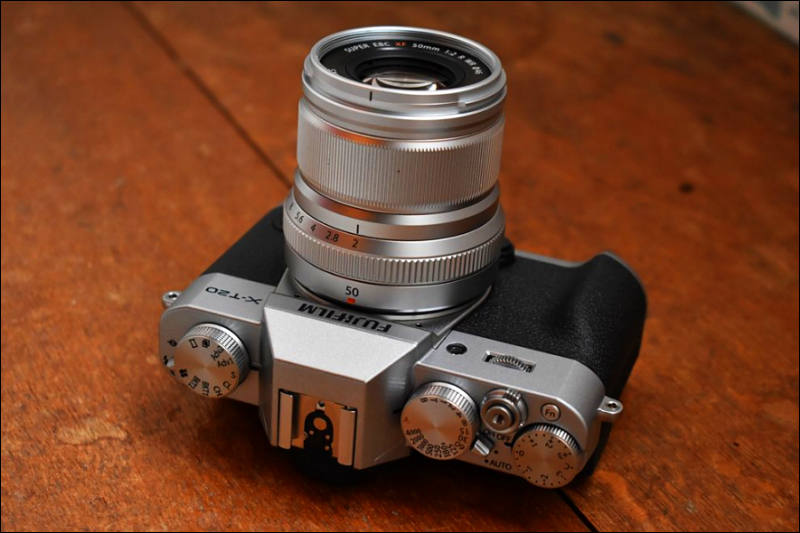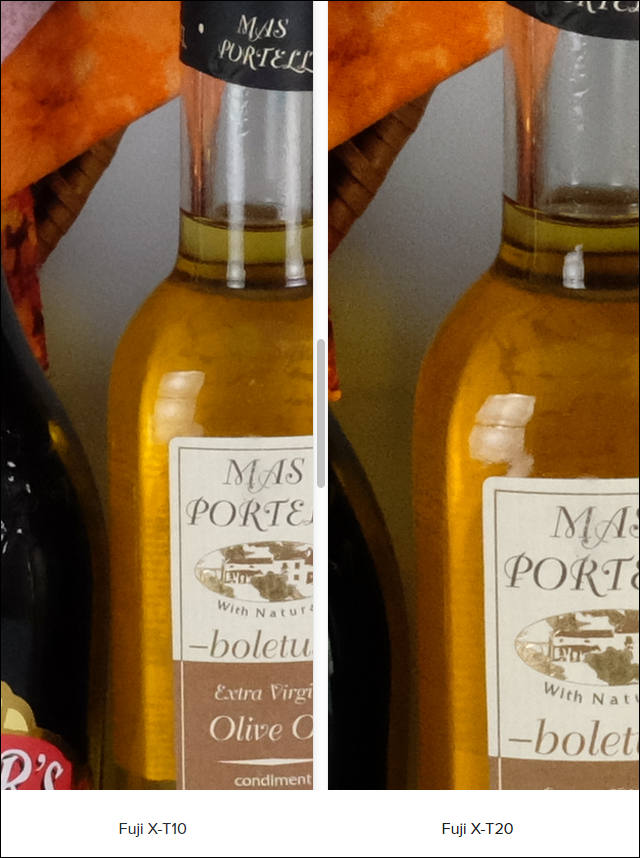
It allows to keep PV going, with more focus towards AI, but keeping be one of the few truly independent places.
-
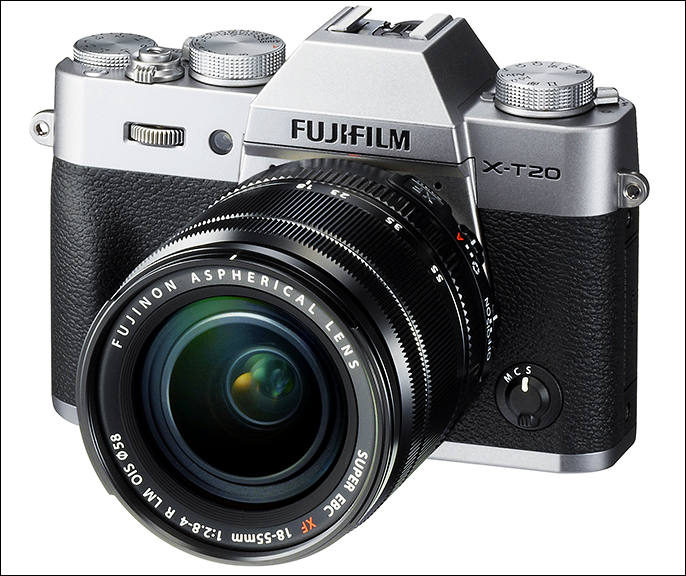
Specs
- 24.3 Megapixel X-Trans CMOS III sensor without AA filter
- Image processing engine "X-Processor Pro"
- Increase the AF points from 91 points up to 325 points
- Video- finally 4K 30 fps, but only up to 10 minutes continuous, also available 1080p60
- 3" tiltable LCD with touchscreen
- EVF with 2.36 million dots, 54 fps, 0.62x magnification
- Continuous shooting at 8 frames/sec with mechanical shutter and up to 14fps with electronic
- ACROS film simulation
- "Movie" position on drive dial. :-)
- Added "C" position to the exposure compensation dial. Up to ± 5 stops exposure compensation are possible.
- Battery is NP-W 126 S • Size - 118.4mm × 82.8mm × 41.4mm • Weight - 333 g (body only), 383 g (including battery, SD card) • Kit lens: XF18 - 55 mm F 2.8 - 4 R LM OIS
- $899 at https://www.amazon.com/Fujifilm-X-T20-Mirrorless-Digital-Camera/dp/B01N10DO3R/
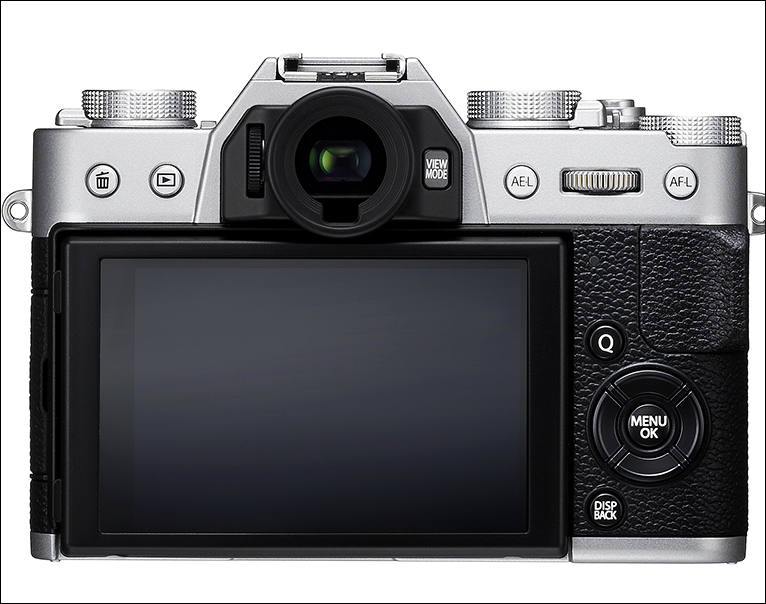

 sample333.jpg686 x 576 - 75K
sample333.jpg686 x 576 - 75K
 sample334.jpg766 x 604 - 64K
sample334.jpg766 x 604 - 64K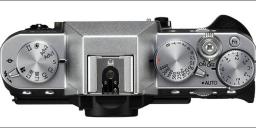
 sample335.jpg800 x 343 - 42K
sample335.jpg800 x 343 - 42K -
Specs added
-
PR
As the leader in innovation for photographers, FUJIFILM North America Corporation today announced the new FUJIFILM X-T20 interchangeable lens camera that joins the award-winning X Series digital camera lineup. The X-T20 is the successor to the FUJIFILM X-T10 and builds on its outstanding image quality, intuitive design, and versatility with a new APS-C sized 24.3MP X-Trans CMOS III sensor and X-Processor Pro image processing engine. The updated sensor and processor, along with an improved AF algorithm, boost the camera’s startup time and AF performance, dramatically improving its ability to track moving subjects for their best pictures to date. The X-T20 also has a large tilting touchscreen LCD monitor for multi-angle shooting and responds to quick gestures for a variety of efficient controls and picture review.
Also announced today is the new FUJINON XF50mmF2 R WR, a compact, mid-telephoto lens adding to the X Series lineup of interchangeable lenses known for their outstanding image quality. The lens features a focal length equivalent to 76mm (in the 35mm film format) and a maximum aperture of F2.0 for beautiful bokeh. The compact and stylish optic also offers high speed AF and weighs just 200g.
*Advanced Imaging for the Discerning Enthusiast *
The FUJIFILM X-T20 improves on the X-T10 with a 24.3MP X-Trans CMOS III sensor and a new Video option to the Drive Dial to enable instantaneous switching from still photo shooting to the video recording mode. The Exposure Compensation Dial now has the C position for exposure compensation up to ±5 stops, while the LCD monitor uses a tilting touchscreen panel for intuitive operation at almost any angle. The X-T20 is also equipped with an Auto mode selector lever for selecting the fully-automatic Advanced SR Auto mode where the camera chooses the optimum settings for a given scene.
The new sensor’s enhanced signal processing technology has even greater control over digital noise with an improved ISO sensitivity of ISO12800 available as a regular ISO option. At ultra-high ISO settings, the camera produces low-noise images, with deep blacks and smooth tones, delivering beautiful images even in low light conditions.
The FUJIFILM X-T20 also has a Grain Effect function for reproducing distinctive graininess seen in photographs taken with film cameras. The function can be set to Strong or Weak, and can be combined with any of the Film Simulation modes. You can easily obtain the look of film-based photos, with the effect most obvious when the image is printed out.
Photo enthusiasts will find the very best image results made possible by Fujifilm's proprietary color reproduction technology, developed through producing photographic films, that helps to reproduce warm skin tones, bright blue skies and rich green foliage, just as you remember seeing in real life.
Compact and Lightweight Body Makes Photography Fun and Easy
With the FUJIFILM X-T20, users will find a compact body that is both strong and light and made from magnesium alloy. The top plate features three precision-milled aluminum dials which give the X-T20 a premium feel and allow users to easily adjust the aperture, shutter speed and shooting functions while concentrating on picture taking.
The X-T20 features a 3.0 inch 1.04M-dot tilting TFT color LCD touchscreen monitor for both above head and close to the ground shooting. By combining the Touch Shot function with the tilt LCD monitor, you can get even more creative. Place the camera on the ground and use Touch Shot for a child’s face or a pet’s eye view, or hold it above a crowd of people or an obstacle for high-angle shooting.
Easy Touch, Swipe and Pinch Controls
The LCD monitor in the X-T20 uses a capacitive touchscreen panel to facilitate high-angle shots, taken from above a crowd of people or an obstacle, as well as low-angle shots simulating the ground level perspective.
Users can also opt to use the LCD monitor as a touchscreen to easily access shooting and playback modes. When shooting with the X-T20, you can use the touchscreen to select the focus area, focus on a specific point, and combine the actions of focusing and shooting in succession.
For playback, users can enjoy swipe to scroll through images, double-tap to enlarge, drag the image once enlarged, along with pinch-out and pinch-in sizing.
Improved AF Performance for Moving Subjects
The FUJIFILM X-T20 has an expanded number of focusing points, up from 49 in the previous model to 91 (up to 325 points). Approximately 40% of the imaging area (the center area containing 49 focusing points) is covered with phase detection AF pixels to form a fast and precise phase detection AF area that can be used in a variety of scenes.
By redesigning the AF algorithm from the ground up, the X-T20 can now autofocus more accurately on points of light, low-contrast objects and subjects with fine details such as bird feathers and animal fur. The read speed of the Contrast AF system has been doubled compared to the previous model to enable faster and more accurate autofocusing. During video recording, the AF point transitions smoothly to track a moving subject to create natural looking footage.
Users can choose from a Single Point mode, useful when accurate focusing on a subject is required, and a Zone mode that allows them to select a 3x3, 5x5 or 7x7 zone out of the 91-point AF area. The centrally positioned 3x3 and 5x5 zones, in particular, deliver fast focusing thanks to the on-sensor phase detection AF. The Wide/Tracking mode is a combination of the Wide mode (during AF-S), in which the camera automatically identifies and tracks the area in focus across the 91-point AF area, and the predictive Tracking mode (during AF-C), which uses the entire 91-point area to continue tracking a subject. This feature enables continuous focusing on a subject that is moving up and down, left and right or towards and away from the camera.
The X-T20 features an AF-C Custom setting, which enhances focus tracking performance when shooting in the Continuous AF (AF-C) mode. In the AF-C Custom setting, users can choose from five AF presets, including:
- Preset 1 (Standard Setting for Multi-Purpose) is a standard setting that can be applied when shooting moving subjects as a whole. It is similar to the conventional AF-C setting, and is selected by default when no AF-C Custom setting is specified.
- Preset 2 (Ignore Obstacles & Continue to Track Subject) is suitable when obstacles are likely to come into a selected focus area, blocking a subject.
- Preset 3 (For Accelerating / Decelerating Subjects) is best suited to situations such as motorsports, which involves a subject that makes major speed changes including rapid acceleration or deceleration. It is particularly effective when using linear motor-driven lenses capable of high-speed AF.
- Preset 4 (For Suddenly Appearing Subjects) gives focusing priority to a subject closest to the camera in the selected focus area, so as to swiftly focus on a subject that suddenly comes into the frame.
- Preset 5 (For Erratically Moving & Accelerating or Decelerating Subjects) is suitable for shooting field sports in which subjects accelerate or decelerate rapidly, and also move erratically.
FUJIFILM X-T20 Key Features:
- 24.3MP APS-C X-Trans CMOS III sensor
- X-Processor Pro
- Start-up time of 0.4sec
- Ultra-fast AF speed of 0.06sec
- Offers 5.0fps live-view shooting
- Shutter time lag of 0.050sec
- Shooting interval of 0.25sec
- 3.0 inch 1.04M-dot tilting TFT color LCD touchscreen monitor
- 0.39 inch 2,360K-dot OLED color viewfinder
- Live View Display to preview pictures where you can
- New ACROS Film Simulation mode
- AF-C Custom Settings with five AF-C presets
- 4K video can be recorded at [3840 x 2160] 29.97p, 25p, 24p, 23.98P, 100Mbps, continuous recording: up to approximately 10min
- Full HD video can be recorded at 59.94 fps, 50 fps, 29.97 fps, 25 fps, 24 fps and 23.98 fps, and with Film Simulation effects
- Video can be outputted to external monitor via the HDMI port and input audio from an external microphone
- Easily connect to external HDMI monitor and turn on HDMI Rec Control to automatically enable a clean HDMI output when the camera’s shutter release button is pressed
- Touch AF to change the focus area and refocusing according to subject movement functions in video recording 24 high-performance FUJINON X-mount lenses for ultimate versatility Integrated pop-up flash with Super Intelligent Flash to automatically adjust light output Unique Lens Modulation Optimizer (LMO) image processing technology to deliver the best possible image quality
- LMO corrects optical defects such as diffraction to achieve edge-to-edge sharpness and a realistic three-dimensional effect
- Nine Film Simulation modes (including ACROS) and Advanced Filter functions for eight different artistic effects
- Multiple Exposure function combines two separate subjects into one photo Interval timer shooting for time lapse photography
- intervals of one second to 24 hours, and up to infinity frames
- Completely silent electronic shutter capable of exposures up to 1/32000 seconds.
- Digital Split Image for precise manual focusing and Focus Peaking to highlight high-contrast areas of the subject
- Eye Detection AF function for automatically detecting and focusing on human eyes
- Auto Macro function automatically activates the Macro mode while maintaining AF speed, eliminating any need to press the Macro button to capture a close-up
- Built-in Wi-Fi for shooting from your smartphone or tablet devices
- Free FUJIFILM Camera Remote app for Remote Control function
- Photos can be sent directly from the camera to the Instax SHARE Smartphone Printer for instant Instax prints Wi-Fi® Transfer is supported, enabling wireless backup of the data to a computer Weather and dust resistant; operates as low as 32 degrees Fahrenheit \ 0 degrees Celsius
-

 sample337.jpg800 x 533 - 81K
sample337.jpg800 x 533 - 81K -
now that's some serious friggin' competition for the g80 imho !
-
If I am not mistaken this has the same processor and sensor as the XT-2. That being said I own the XT-2 and believe me the sensor and lowlight performance is incredible for an APSC sized sensor. I am still getting used to shooting with the XT-2. I screwed up the exposure and accidently switched the metering system and totally screwed up some still images that I shot the other day basically overexposing and underexposing. I am not sure how Fuji does it but I was able to recover the highlights out of images that I thought was completely blown out. I know for a fact if I shot those same images with my Nikon D750 the highlights would be gone unrecoverable. I was shocked and baffled to say the least???. Also in terms of recovering shadows basically the same thing although I do think the D750 has the edge in terms of shadow recovery.
Still this sensor has excellent performance all the way around. Having said that and after shooting still images and video with the GH2/GH4 IMO I dont think its even a comparison in terms of still images comparing it to the G80. In terms of video and strictly video I would probably go with the G80 due to the limited time limit of only 10 minutes with the XT-20. But if the 10 minute limit is not an issue then hands down I would pick the XT-20 over the G80.
-
Here are some shots that I took from the the XT-2 that shares the same sensor. These are the 3 profiles that I like to use Provia, Astia and Pro Neg Std. All of these images were shot using the 3 stock picture profile settings above. These are JPGs straight from the camera with no editing. The only thing that I did on my end was an in camera custom white balance off the Photovision Target.
On the video side of things using the Pro Neg Standard profile with H-2/S-2 the image looks pretty good to me.

 _DSF5050 Custom WB Provia Standard.jpg1920 x 1280 - 351K
_DSF5050 Custom WB Provia Standard.jpg1920 x 1280 - 351K
 _DSF5052 Custom WB Astia.jpg1920 x 1280 - 355K
_DSF5052 Custom WB Astia.jpg1920 x 1280 - 355K
 _DSF5055 Custom WB Pro Neg STD.jpg1920 x 1280 - 357K
_DSF5055 Custom WB Pro Neg STD.jpg1920 x 1280 - 357K -
More hands-ons and samples
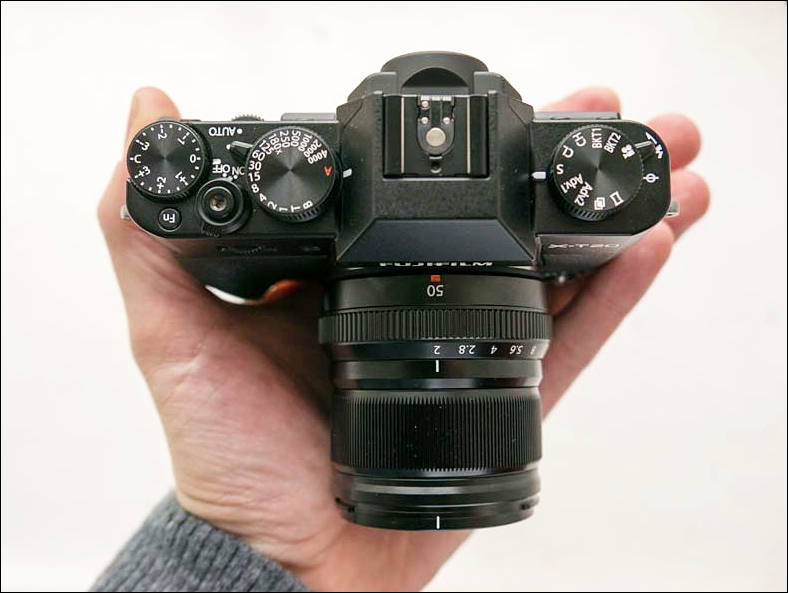
http://www.photographyblog.com/news/fujifilm_x_t20_hands_on_photos/
After tester interaction samples
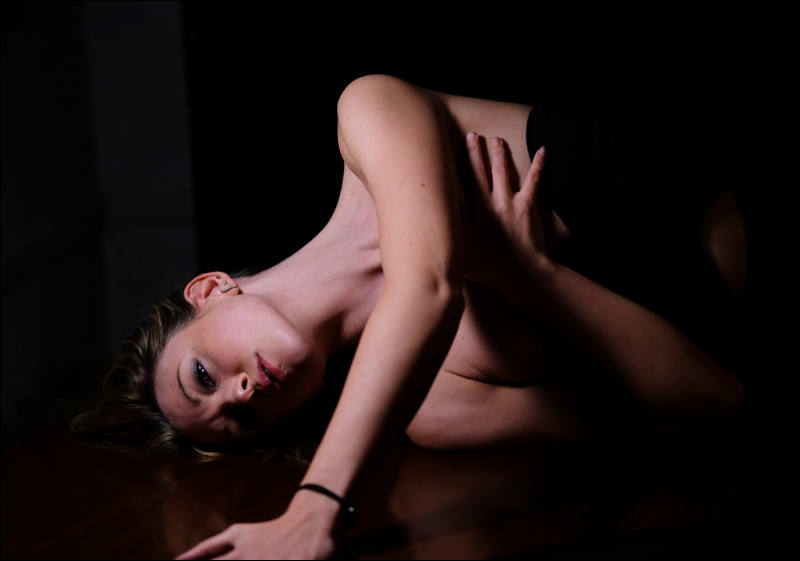
http://www.photographyblog.com/previews/fujifilm_x_t20_photos/

 sample358.jpg788 x 593 - 54K
sample358.jpg788 x 593 - 54K
 sample359.jpg800 x 561 - 28K
sample359.jpg800 x 561 - 28K -
The X-T20 is a nice little camera that shares many features with the X-T2 but is roughly half its price. The sensor and image processor are the same as in the X-T2 but you miss out on the weatherproofing, there's only one SD slot and it's in the battery compartment and you're stuck with the slower USB 2 interface, while the X-T2 has a USB 3 port.
-

 sample876.jpg922 x 607 - 133K
sample876.jpg922 x 607 - 133K -
Review
Image quality is similar to the X-T2 that we reviewed last year, that is to say, outstanding. Despite the resolution increase to 24 megapixels, noise is noticeable only by its almost complete absence throughout the ISO range of 100-51200, the JPEG quality is so good that you could conceivably never need the Raw files, and the extensive range of lenses are almost uniformly well-regarded by reviewers and photographers alike. The excellent 18-55mm kit lens is once again worthy of mention, delivering sharp results throughout the focal range.
http://www.photographyblog.com/reviews/fujifilm_x_t20_review/
-

 sample893.jpg800 x 535 - 154K
sample893.jpg800 x 535 - 154K -

 sample1012.jpg800 x 511 - 104K
sample1012.jpg800 x 511 - 104K -

 sample1136.jpg800 x 479 - 46K
sample1136.jpg800 x 479 - 46K -
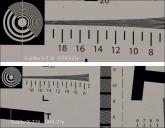
 sample1170.jpg798 x 619 - 61K
sample1170.jpg798 x 619 - 61K
 sample1171.jpg800 x 519 - 155K
sample1171.jpg800 x 519 - 155K -

 sample118.jpg640 x 858 - 78K
sample118.jpg640 x 858 - 78K -

 sample190.jpg800 x 532 - 152K
sample190.jpg800 x 532 - 152K -
New firmware
The firmware update Ver.1.01 from Ver.1.00 incorporates the following issues:
The phenomenon is fixed that IMAGE SIZE will be displayed when PHOTOMETRY is selected in ADD ITEMS of MY MENU SETTING.
http://www.fujifilm.com/support/digital_cameras/software/firmware/x/xt20/index.html
Howdy, Stranger!
It looks like you're new here. If you want to get involved, click one of these buttons!
Categories
- Topics List23,964
- Blog5,723
- General and News1,342
- Hacks and Patches1,151
- ↳ Top Settings33
- ↳ Beginners254
- ↳ Archives402
- ↳ Hacks News and Development56
- Cameras2,361
- ↳ Panasonic990
- ↳ Canon118
- ↳ Sony154
- ↳ Nikon96
- ↳ Pentax and Samsung70
- ↳ Olympus and Fujifilm99
- ↳ Compacts and Camcorders299
- ↳ Smartphones for video97
- ↳ Pro Video Cameras191
- ↳ BlackMagic and other raw cameras121
- Skill1,961
- ↳ Business and distribution66
- ↳ Preparation, scripts and legal38
- ↳ Art149
- ↳ Import, Convert, Exporting291
- ↳ Editors191
- ↳ Effects and stunts115
- ↳ Color grading197
- ↳ Sound and Music280
- ↳ Lighting96
- ↳ Software and storage tips267
- Gear5,414
- ↳ Filters, Adapters, Matte boxes344
- ↳ Lenses1,579
- ↳ Follow focus and gears93
- ↳ Sound498
- ↳ Lighting gear314
- ↳ Camera movement230
- ↳ Gimbals and copters302
- ↳ Rigs and related stuff272
- ↳ Power solutions83
- ↳ Monitors and viewfinders339
- ↳ Tripods and fluid heads139
- ↳ Storage286
- ↳ Computers and studio gear560
- ↳ VR and 3D248
- Showcase1,859
- Marketplace2,834
- Offtopic1,319


